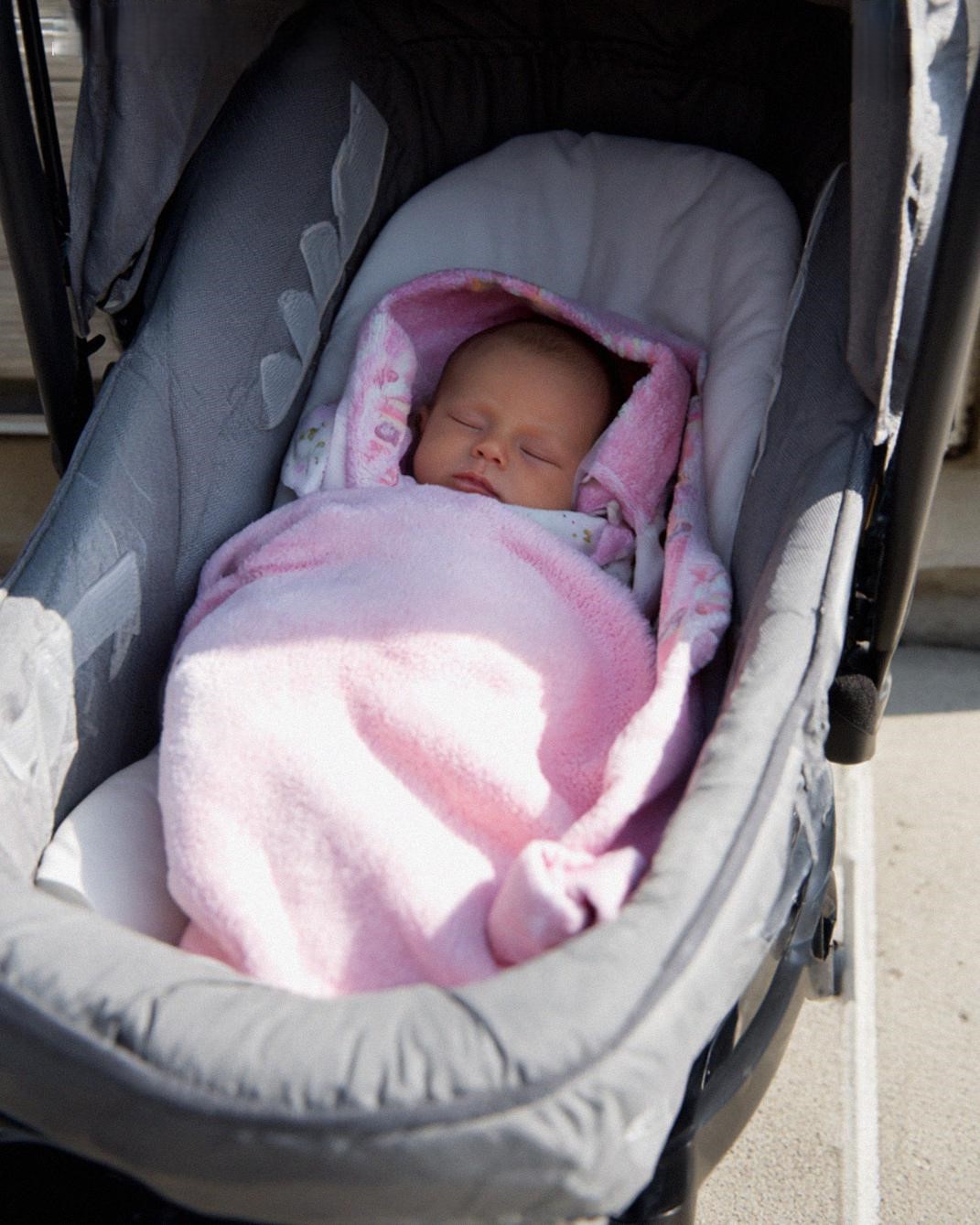I carried my sister’s baby for nine months, fully believing I was giving her the greatest gift a sister could ever give. It was not just about biology or a contract—it was about love, sacrifice, and hope for a family torn apart by pain. But six days after the birth, everything I thought I knew came crashing down. I opened my front door and found that same baby, abandoned on my porch—wrapped tightly in a blanket, with a note in my sister’s handwriting that shattered me to my core and forever altered the course of my life.
Claire was always the golden one—the kind of sister who seemed to glide through life effortlessly, with grace, elegance, and a kind of composure I could never hope to master. She was the one who had the perfect hair, the perfect job, the perfect husband. I, on the other hand, was the messy one—hair always thrown up in a careless bun, chronically late, juggling two kids, a job, and a home that was often in chaos. But despite these differences, we were close. Or so I believed. When she married Ethan, a successful finance guy, I was genuinely happy for her. It seemed like they had it all—except for the one thing they both desperately wanted: a child.
For years, Claire had battled through IVF cycles, heartbreaks, and devastating miscarriages. I’d been there, watching her cry silently on bathroom floors, her face hollowed and distant as she stared at ultrasound photos that never went past the first trimester. The sorrow etched into her was deep, and I thought nothing would ever heal it. When she finally asked me to be her surrogate, I didn’t hesitate for a moment. “If I can carry a baby for you, I will,” I told her. I wrapped her in my arms as she sobbed, whispering, “You’re saving us.”
We did everything by the book—doctors, lawyers, contracts. But beneath the paperwork, it was all about love. I had carried my own children before; I knew what motherhood was—the joy, the fear, the hope. I wanted Claire to experience that too.
The pregnancy was smooth, filled with moments of hope and anticipation. Claire never missed an appointment. She showed up with smoothies and prenatal vitamins, excitedly texting me baby names every morning. Ethan took on the nursery painting himself, his eyes shining with pride. For nine months, the heaviness of loss lifted and hope took root in our homes once again.
When baby Nora was born, the delivery room was filled with tears—tears of joy, relief, and love. Claire held her first, whispering, “She’s perfect.” Ethan looked at me with tears in his eyes and said, “You gave us everything.” I corrected him gently, “She gave you everything.”
They left the hospital glowing, promising to visit soon. For two days, they sent pictures—Nora sleeping peacefully, Nora swaddled in her crib, Nora wrapped in Ethan’s arms. Then, the silence came. No calls, no messages. Just silence.
On the sixth morning, while I was making breakfast for my kids, I heard a knock at the door. When I opened it, I froze. There, on my porch, sat a wicker basket. Inside, wrapped in the pink hospital blanket, was baby Nora.
Pinned to the blanket was a note in Claire’s handwriting: “We didn’t want a baby like this. She’s your problem now.”
My knees gave out. My hands trembled as I called Claire, barely able to form the words. “What is this? Why is Nora here?”
Her voice was cold, distant. “You knew about Nora. The doctors told us she had a heart defect. Ethan and I can’t handle that. We didn’t sign up for this.”
I was speechless. She hung up after delivering the words that haunt me still: “She’s your problem now. We don’t want damaged goods.”
I held that tiny, fragile baby in my arms and cried until I couldn’t breathe. Then, I called my mom, and we rushed Nora to the hospital. The doctors confirmed it—a congenital heart defect, serious but treatable with surgery in a few months. “She’s strong,” one doctor told me. “She just needs someone who won’t give up on her.”
I looked him in the eyes and said, “She has me.”
The months that followed were brutal—endless sleepless nights, hospital visits that drained every ounce of energy, and mountains of legal paperwork to make the adoption official. But none of that mattered. I fed her, held her, and whispered promises that she would never have to doubt: “You’re safe. You’re loved.”
When the day of her surgery finally came, I sat outside the operating room clutching her blanket, praying harder than I ever had before. Hours later, the surgeon came out smiling. “She did beautifully. Her heart is strong now.”
Five years have passed since then. Nora is unstoppable—loud, creative, endlessly curious. She paints butterflies on the walls, dances barefoot in her pajamas, and tells everyone she meets that her heart “got fixed by magic and love.” Every night, she presses my hand to her chest and asks, “Can you hear it, Mommy? My strong heart?” And every single time, I answer, “Yes, baby. The strongest I’ve ever heard.”
Claire and Ethan’s perfect life crumbled soon after. His business collapsed. They lost their house. Mom told me Claire sent a long email, trying to apologize. I never replied.
I didn’t need revenge. I already had everything she threw away—the little girl who made me a better mother, who turned pain into purpose.
I gave Nora life. She gave mine meaning. That’s the purest justice there is.
